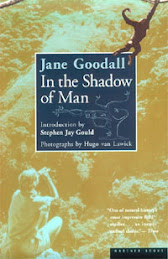
Three Cups of Tea: One Man's Mission to Promote Peace...One School at a Time
by Greg Mortenson and David O. Relin
In 1993 Greg Mortenson expected to summit K2 in honor of his late sister, Christa. What he didn't expect was to fail his attempt, get lost on the mountain twice, and fall in love with a small village named Korphe, impoverished and forgotten by its own country. Mortenson promised the village leader, Haji Ali, that he would return to build a school for Korphe. Thus began Dr. Greg's school-building saga.Mortenson's mission is to breathe life into the forgotten, poor and wor-torn villages of Pakistan and Afghanistan by educating their children, both girls and boys. Not only does he build schools, but he also builds whatever is necessary for the students to thrive in their education, be it bridges, wells, or women's centers. Mortenson helps the villages to build these structures for themselves, a monument that they can put to immediate use and be proud of as a community. Mortenson builds these schools in the face of kidnapping, fatwas, death threats, loss of funding, 9-11, and war. His is an amazing and inspirational story of kindness, learning, and understanding. While the writing was a bit choppy, journalistic and, at times, cheesy, the story drew me in and captured my attention. You can learn more about Mortenson's campaign at the website for his foundation, the Central Asia Institute.





